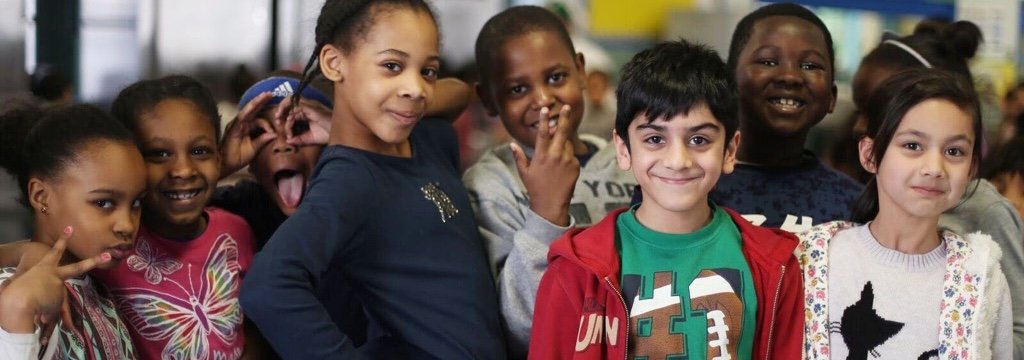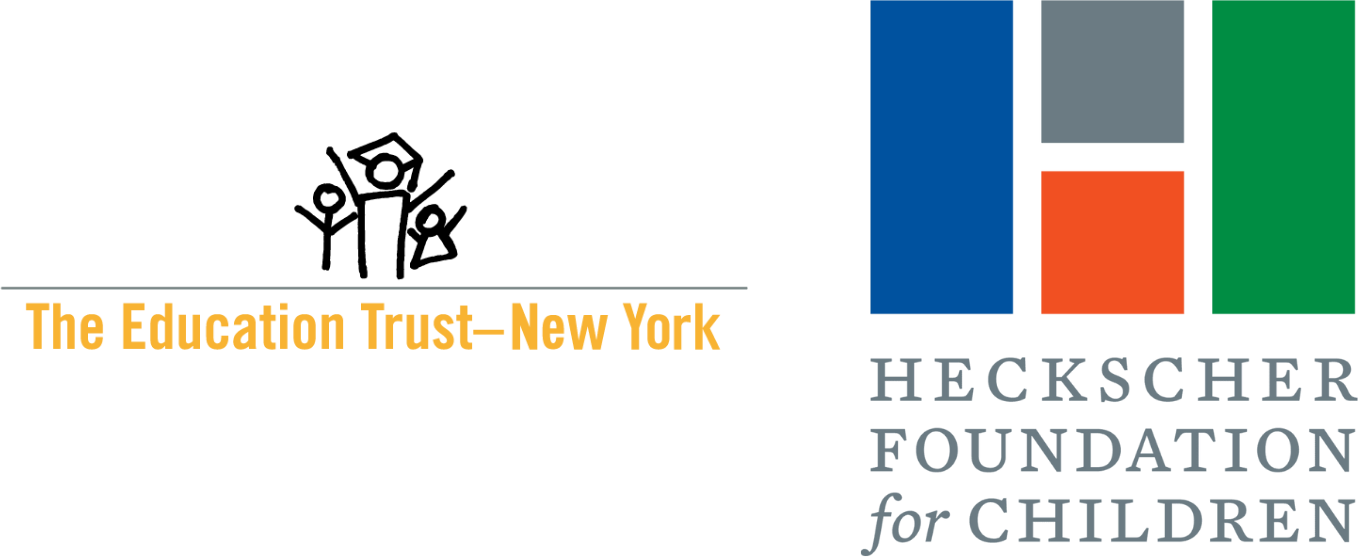Francis Lewis High School
Grades: 9-12Our Insights
What’s Special
Huge variety of courses and activities; lots of options and support for students with special needs
The Downside
Overcrowding and large class sizes
Francis Lewis is one of the city’s largest and most successful high schools. It is home to the nation's largest chapter of Junior ROTC, a sought-after law program, and demanding, selective programs in engineering, science research and humanities that offer academics on par with specialized and other highly competitive schools. Local students who qualify for these programs or are zoned for the school should think twice before taking on a long commute to attend selective or popular schools elsewhere in the city.
With course offerings that outpace some small colleges, options abound at Francis Lewis for all students. Ten languages are taught (including American Sign Language) and there are myriad Advanced Placement (AP) and College Now courses.
There are also class settings tailored for a range of student needs. For instance, there are three types of calculus class: AP calculus, AB and BC, as well as non-AP calculus for students not quite ready to tackle the college-level version. There are also sections for algebra and living environment that are taught over two years to give struggling students more time and support to learn the subjects.
To help downsize the learning experience for all, the school is organized into themed programs known as small learning communities (SLCs). In addition to the programs that admit students from outside the school’s zone, there are SLCs in art, business (known as Virtual Enterprise), dance, digital design, drama, engineering, forensics, international studies, journalism, and sports and health sciences. Each one delivers on its theme through a sequence of classes unique to that SLC and some dedicated activities that help build a sense of community. By the start of 10th grade, all students are enrolled in an SLC that they stick with through graduation.
Overall, academics are strong across all subjects and instruction that we observed reflected a mix of teaching styles. Collaborative work and projects dominate in some classes, while teacher-directed lessons are the norm elsewhere. Regardless of the class structure, we saw a lot of teachers build in time for student discussion and reflection.
Students have lots of opportunities to participate in competitions: in math, science, robotics, debate, moot court, mock trial, Model UN, the arts, writing and business. Science research students, who are groomed for national competitions such as Siemens and Regeneron Science Talent Search, take daily lab classes and have access to research labs during their free periods. By their junior year, they are working with professional mentors on independent research projects.
The vibe throughout the school is cheery and surprisingly orderly despite massive overcrowding (it's housed in a building designed for a much smaller population) and large class sizes. Hallways get very congested during change of classes and lunch periods serve up to 1,000 students at time, yet during our visit noise levels remained under control and students were calm in classes and throughout the building.
Most students adapt to the enormity of the place by finding their niche in a club, team or activity. There’s an eclectic mix of more than 50 student clubs and activities as well as many PSAL sports teams. Model UN, a popular activity, runs as a club in the lower grades and as a formal class for juniors and seniors. Choral groups and bands perform in concerts throughout the year. There are annual school plays.
Roughly 1,000 students participate in Junior ROTC, which requires no commitment to serve in the military. Some of the participants we spoke with, including girls who proudly keep pace with boys in physical feats such as regulation push-ups, say they appreciate the leadership training, camaraderie and academic support that are core to the program.
Graduates attend a wide variety of colleges such as CUNY, SUNY, trade schools and highly selective private colleges, including Ivy League universities and West Point Academy.
SPECIAL EDUCATION: The school has a substantial special education and English language learner (ELL) population and offers many types of supports and settings. In addition to SETSS, there are self-contained and ICT classes in many subjects. Teachers take care to identify students’ strengths and place them in class settings that both support and challenge them. For instance, a student who needs self-contained classes for most courses but is strong in one area—for instance, math—will be placed in a general education class for that subject. When we visited, the school offered several ICT sections for algebra II/trig to accommodate all the students with special needs who were keeping pace with the traditional sequence of high school math. An alternative assessment program provides life skills, work opportunities and academic instruction for students who are unable to take a traditional academic load because of severe disabilities. There are multiple class settings for ELLs, such as bilingual instruction in core subjects, English classes for beginning speakers and self-contained classes for ELLs with special needs.
(Laura Zingmond, April 2015; updated March 2018).
Get more from InsideSchools
School Stats
Academics
Students
Race/Ethnicity
Safety & Vibe
Faculty & Staff
Teachers’ Race/Ethnicity
College and Career Readiness
Programs & Admissions
From the 2024 High School DirectoryJacob K. Javits Law Institute (Q20A)
Program Description:
This program distinguishes itself with recognition in Mock Trial and Moot Court competitions. A small learning community which offers law-related courses including: You and The Law, Constitutional & Business Law, Mock Trial, Debate Team, and Bioethics. This program gives a priority to students who live in the zoned area for up to 50% of the seats.
Engineering and Robotics (Q20H)
Program Description:
Students are programmed for honors level courses in Computer Science, Engineering, and Robotics. Students will prepare for a variety of high level regional and national competitions. This program gives a priority to students who live in the zoned area for up to 50% of the seats.
University Scholars (Q20J)
Program Description:
This program provides an honors-level sequence of courses which engages students in a rigorous scholastic experience in the Liberal Arts & Humanities. Each term students are programmed for a second language or an additional English/Humanities course. This program gives a priority to students who live in the zoned area for up to 50% of the seats.
Science Research Institute (Q20K)
Program Description:
Our award-winning institute has received high Honors in the National Siemens Competition, Intel, and NYSCEF. Students are programmed for advanced honors courses preparing for the SAT2 subject exams and courses in authentic science research. This program gives a priority to students who live in the zoned area for up to 50% of the seats.
75Q811 D75 Inclusion Program at Francis Lewis High School (Q20U)
Francis Lewis High School ACES 15:1 Program (Q20Y)
Zoned (Q20Z)
Offerings
From the 2024 High School DirectoryAdvanced Courses
Algebra II (Advanced Math), AP Biology, AP Calculus AB, AP Calculus BC, AP Chemistry, AP Chinese Language and Culture, AP Computer Science A, AP Computer Science Principles, AP English Language and Composition, AP English Literature and Composition, AP Environmental Science, AP Japanese Language and Culture, AP Macroeconomics, AP Microeconomics, AP Physics 1, AP Physics C: Mechanics, AP Psychology, AP Research, AP Seminar, AP Spanish Language and Culture, AP Statistics, AP United States Government and Politics, AP United States History, AP World History: Modern, Calculus (Advanced Math), Chemistry (Advanced Science), Chemistry (College Course [Credited]), ELA (College Course [Credited]), Math (College Course [Credited]), Physics (Advanced Placement), Physics (Advanced Science), Social Studies (College Course [Credited]), World Languages (Advanced World Languages)
Boys PSAL teams
Badminton, Baseball, Basketball, Bowling, Cross Country, Fencing, Handball, Indoor Track, Outdoor Track, Soccer, Swimming, Tennis, Volleyball, Wrestling
Girls PSAL teams
Badminton, Basketball, Bowling, Cross Country, Fencing, Flag Football, Golf, Handball, Indoor Track, Outdoor Track, Soccer, Softball, Swimming, Table Tennis, Tennis, Volleyball, Wrestling
Coed PSAL teams
Cricket
Read about admissions, academics, and more at this school on NYCDOE’s MySchools

Contact & Location
Location
58-20 Utopia Parkway
Queens
NY
11365
Buses: Q17, Q30, Q31, Q65, Q88, QM1, QM31, QM35, QM5, QM7, QM8
Contact
Other Details
This school is in its own building.


Comments